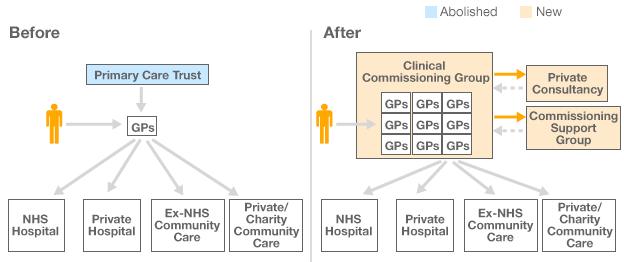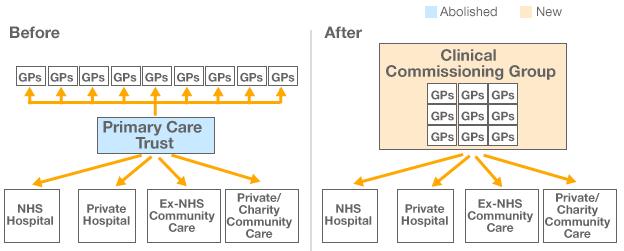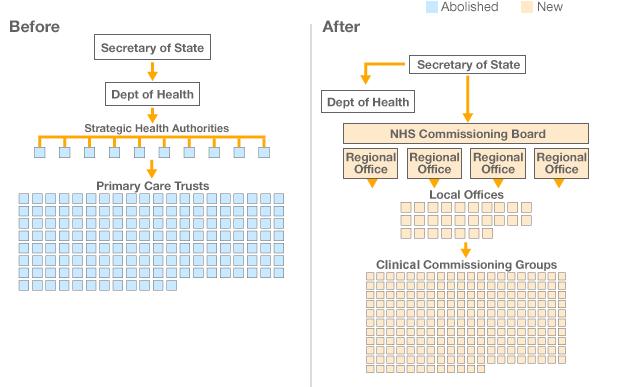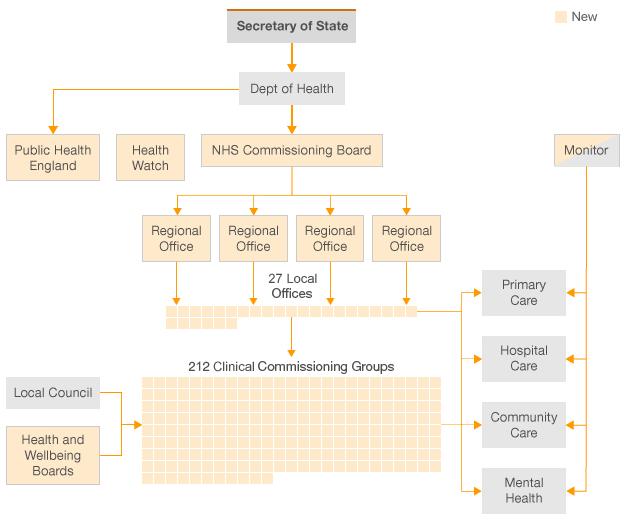The changing NHS
- Published
The NHS in England is in the middle of the biggest reorganisation since its creation.
There has been intense political debate - but many patients are still unclear about what it will mean. Here we look at the main changes.
The NHS is a very large and complex organisation. Most parts will be affected in some way.
But the biggest changes are about who makes decisions and who spends the money.
New organisations are being created and others abolished.
And the legal responsibility for managing most of the NHS budget will be handed over in April 2013 to some of these new organisations locally and nationally.
Local councils are also being given a bigger role in influencing health services.
In the long term, the NHS may look very different - but for the moment patients going to see their GP or going into hospital may see little visible difference.
Who plans and buys treatment for patients?

At the moment, 152 bodies called primary care trusts (PCTs) control local spending on dentists, hospital operations and tests, and medicines - accounting for 80% of NHS spending. They are mostly made up of health managers.
Some care may be provided by private health companies, or charities.
The rest, controlled nationally, includes things like specialist care.
From April 2013 PCTs will be replaced by more than 200 GP-led organisations called Clinical Commissioning Groups (CCGs).
They will be responsible for closer to 60% of the NHS budget. Every GP surgery has to belong to a CCG, although in reality only a small number of GPs will take responisbility for deciding what local services to fund.
Ministers believe GPs will be more responsive to the needs of patients as they have day-to-day contact with them. This, the theory goes, will make the NHS more efficient and improve the quality of care.
New organisations will be able to offer CCGs support on buying and planning health services.
Who directs the funding?

CCGs will decide whether or not to pay for any hospital care a GP thinks they need - as PCTs do now.
The government says CCGs will be better placed to decide on local priorities because more doctors and nurses will be involved.
Some GPs are keen to get more involved in these decisions - but others fear factoring in costs will compromise the doctor-patient relationship.
Most care is provided by NHS organisations, but some routine operations are carried out by private companies - but paid for by the NHS.
Under the new system a regulator called Monitor will be given the job of making sure there is a level playing field for private companies and charities to compete with NHS organisations to provide care.
The government says Monitor will also have to ensure competition does not affect the service patients receive.
How is the NHS run?

The health secretary sets policies, such as waiting times, for the NHS.
Currently, the Department of Health then passes these down through 10 strategic health authorities and then to the PCTs who have to ensure they are implemented.
Under the new system the clinical commissioning board will take charge of overseeing the NHS from the Department of Health.
Instead priorities will be given to a new NHS Commissioning Board, based in Leeds but with four regional and 50 local offices around England.
It will control a significant part of the overall budget so that it can plan and buy specialist services and will also be charged with ensuring CCGs do not overspend their budgets.
Local councils are to have more of a role in tackling public health problems, such as obesity, in their area - and new health and wellbeing boards will help link this work with that of the CCGs.
A national body called Healthwatch, with local groups, is being set up to enable patients to have their say about the NHS.
Overall structure of the new NHS in England

- Published27 September 2012